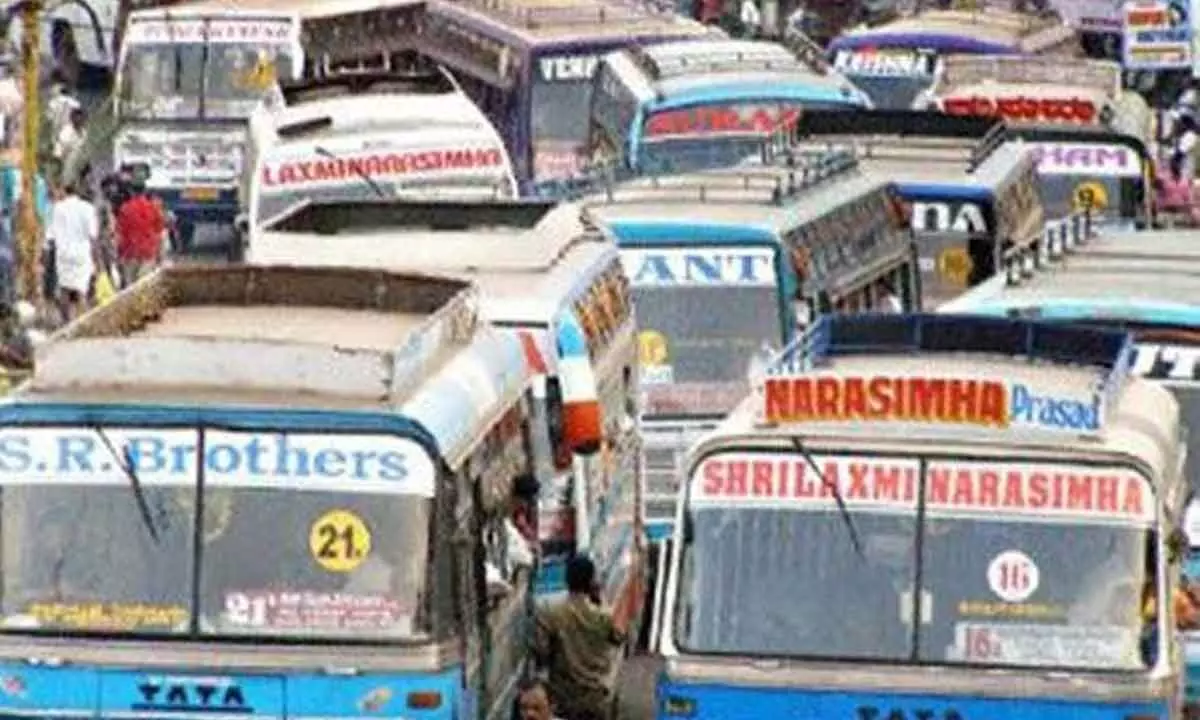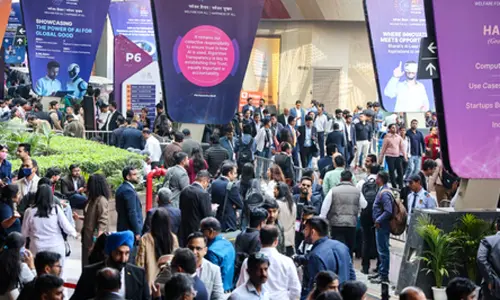Sound pollution worse than air pollution in Mangaluru, Udupi: KSPCB

Modern vacuum horns blare out 100 decibels of raw sound fitted on the private buses and city schools, colleges and hospitals have been robbed of their peace
Mangaluru: The coastal cities of Mangaluru and Udupi which boast of one of the most efficient private transport systems have started feeling its strain on the other systems particularly education and health care. It was paradoxical that the same privately run public transport system that took the coastal cities to the higher rung of development has now become 'ear sore' to these cities.
Thanks to the modern vacuum horns that blare out 100 decibels of raw sound fitted on the private buses, city schools, colleges and hospitals have been robbed of their peace leaving the teachers unable to effectively deliver the lectures inside the classrooms and the doctors struggling to help their patients to recover.
"I cannot compete with the blare of the horns, every other minute the shrill horns on the roads send shock waves into the classrooms, I do not deliver lectures but I shout lectures in the classrooms, and my colleagues also complain about the same sound pollution in other colleges and in my own college" Savita Rao a physics teacher in one of the colleges in the city told Hans News Service.
The hospitals were also under great stress due to the shrill horns in Mangalore. "The shrill horns surely have an effect on the patients as they get traumatised due to the loud sounds, as a result, their recovery from their illness takes longer time, most of the patients display hypertension. Generally, anybody tends to get hypertension when they are exposed to loud sounds" a senior cardiologist of the Kasturba Medical College hospital says.
It is not that civil society has not done anything to bring down this menace. "We have many times complained to the police (Traffic) they just give us some statistics, that are convincing though. The traffic police of Mangalore along with the RTO of Mangalore have taken up the indefinite drive to remove the menace of shrill horns. We have booked over 400 vehicles of all classes and private buses. We are very particular about the shrill horns and during every routine check we make sure the horn is checked for compliance with noise pollution limits" the police say.
A senior teacher in St. Aloysius College said "the teachers in my college particularly in the Aruppe block and the Post Graduate block that are situated closer to the road, have complained that teaching has become extremely difficult due to the Klaxons (shrill horns) blaring high decibel sounds every other minute. We have even lodged a police complaint against the use of shrill horns nearer to our college".
According to the transport officials the buses or any other vehicle plying on the public roads cannot use horns other than those provided by the vehicle manufacturer. They are basically electrically operated horns, they come with the vehicle as original equipment (OE) and has to pass through the elaborate testing process by the pollution control boards of the respective states where the vehicles are manufactured, the officials said.
The Transport Commissioner's office in Bangalore has directed the Dakshina Kannada Regional Transport office on more than two occasions to control the menace of the Klaxons in the city in the past after repeated complaints from the civil society, as well as the mofussil routes but the RTO and the Regional Transport Authority (RTA) have not heeded to the directions. The police however appear to have taken note of the directions and once in a year or twice they take up a drive to remove the klaxons from the vehicles, but the horns come back with a vengeance.
According to the Karnataka State Pollution Control Board (KSPCB), the sound pollution in Mangaluru was even worse than the air pollution. The board has also written to the Deputy Commissioner of Dakshina Kannada who is also the chairman of the RTA but there has been no action so far.
Former Superintendents of Police in Dakshina Kannada Seemanth Kumar Singh and Kamal Pant had tried to set things right during their respective tenures, but the lobby of the transporters are so overbearing and strong that they managed to hoodwink the system. Both officials went to the extent of making the bulb horns mandatory for the buses. But the private bus lobby was able to strike it down.
The All India Institute Of Speech and Hearing at Mysuru had also observed in one of the national seminars that long-time exposure to sound averaging more than 10 decibels might result in temporary or permanent hearing loss. The National Institute of Mental Health and Neurological Sciences Bengaluru has also hinted at brain damage and mental instability in the long run, especially for children, ladies and old people if they are exposed to high-intensity sounds for a long time. The human rights activists in the city felt that the use of shrill horns also was a form of human rights violation as it inflicted trauma and unleashed violence by sound.








